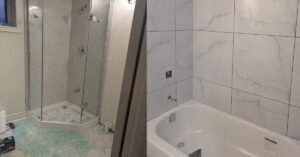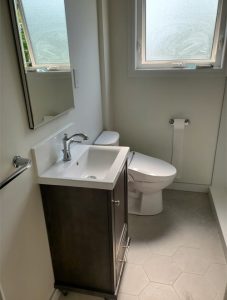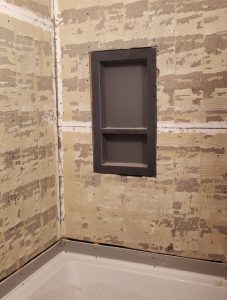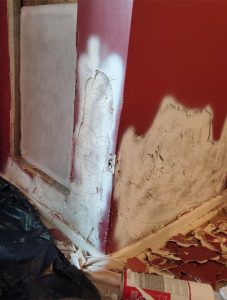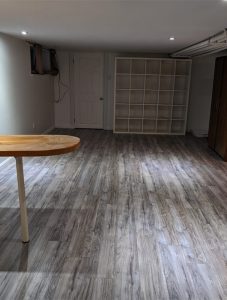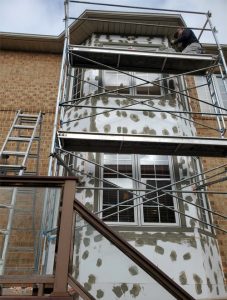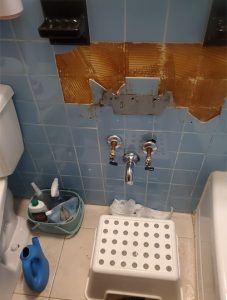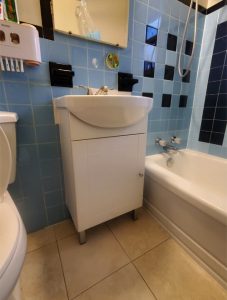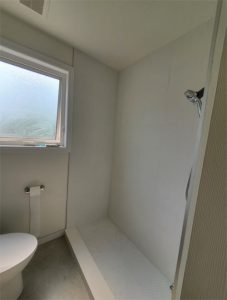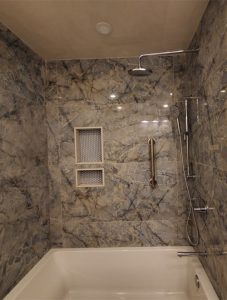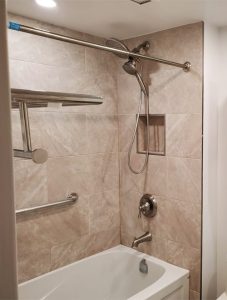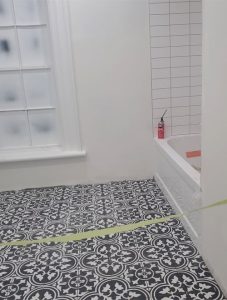Selecting the right material for your shower floor is more than just a design choice—it’s about safety, durability, and ease of maintenance. With so many options available, it’s easy to feel overwhelmed. Let’s break down the pros and cons of popular materials to help you make an informed decision.
Key Factors to Consider
Before exploring materials, keep these priorities in mind:
- Slip Resistance: Safety first—textured surfaces reduce slipping.
- Water Resistance: Avoid materials that absorb moisture.
- Durability: Choose options that withstand daily wear.
- Maintenance: Opt for easy-to-clean surfaces.
- Budget: Balance cost with long-term value.
Top Materials for Shower Floors
1. Ceramic Tile
Ceramic tiles are a classic choice for their versatility and affordability.
- Pros:
- Available in endless colors and patterns.
- Budget-friendly compared to other options.
- Easy to replace individual tiles if damaged.
- Cons:
- Grout lines require regular cleaning to prevent mold.
- Smooth finishes can become slippery.
Tip: Choose textured or matte-finish tiles for better grip.
2. Porcelain Tile
Porcelain is a denser, more durable cousin of ceramic tile.
- Pros:
- Highly resistant to water and stains.
- Low maintenance and long-lasting.
- Mimics natural stone or wood for a high-end look.
- Cons:
- Heavier and harder to cut during installation.
- Slippery when wet unless textured.
3. Natural Stone
Options like slate, marble, or travertine add a luxurious feel.
- Pros:
- Unique, organic patterns for a custom look.
- Increases home resale value.
- Cons:
- Requires annual sealing to prevent water damage.
- Porous surfaces can harbor bacteria.
- Higher cost and maintenance.
Best For: Homeowners willing to invest in upkeep for a timeless aesthetic.
4. Vinyl or Linoleum
Vinyl is a practical, budget-friendly option for modern homes.
- Pros:
- Soft underfoot and naturally slip-resistant.
- Waterproof and easy to install.
- Affordable and available in sheets or tiles.
- Cons:
- Less durable—may scratch or fade over time.
- Limited design options compared to tile.
5. Solid Surface Materials
Acrylic or composite materials create a seamless, modern shower floor.
- Pros:
- No grout lines—easy to clean.
- Customizable shapes and colors.
- Non-porous and resistant to mold.
- Cons:
- Can develop scratches or discoloration.
- Higher installation costs.
6. Pebble Tile
For a spa-like feel, pebble tiles offer natural texture.
- Pros:
- Excellent slip resistance.
- Therapeutic underfoot massage effect.
- Unique, organic appearance.
- Cons:
- Grout lines need frequent cleaning.
- Uneven surface may feel uncomfortable to some.
How to Decide What’s Right for You
- Budget: Vinyl and ceramic are cost-effective; stone and solid surfaces are pricier.
- Lifestyle: Busy households may prefer low-maintenance porcelain or vinyl.
- Aesthetic: Match the material to your bathroom’s style—modern, rustic, or minimalist.
- Safety: Prioritize textured surfaces if you have children or elderly family members.
Final Thoughts
Your shower floor material should balance practicality and style. While natural stone offers unmatched beauty, it demands regular care. Porcelain and vinyl strike a great middle ground for durability and affordability. Always consult a professional for installation to avoid water damage or uneven surfaces.
By weighing your needs against the pros and cons above, you’ll find a material that keeps your shower safe, functional, and visually appealing for years to come.

